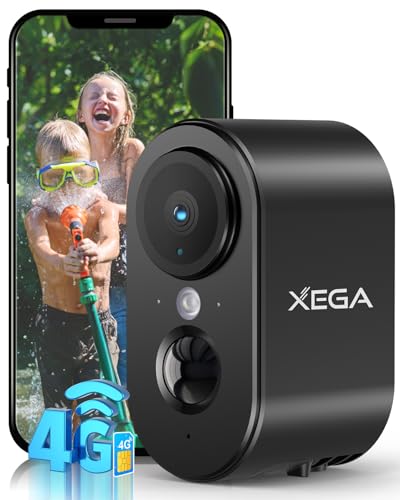




Security cameras are a vital tool for monitoring your home or business, but they can also be vulnerable to cyber attacks. One way to enhance the security of your IP camera is by using a Virtual Private Network (VPN).
A VPN creates a secure, encrypted connection between your device and the internet, ensuring that your data remains private and protected from hackers. By setting up a VPN on your IP camera, you can prevent unauthorized access and keep your footage secure.
In this article, we will guide you through the process of setting up a VPN for your IP camera, ensuring that your surveillance system remains secure and protected at all times.
Ways to Secure Your IP Camera with a VPN
Using a VPN to secure your IP camera is a smart and effective way to enhance the security of your surveillance system. Here are some ways to ensure your IP camera is protected:
1. Encrypt Your Data
By using a VPN, all data transmitted between your IP camera and the monitoring device is encrypted. This means that even if someone intercepts the data, they won’t be able to decipher it without the encryption key.
2. Hide Your IP Address
With a VPN, your real IP address is masked and replaced with the IP address of the VPN server. This adds an extra layer of anonymity and security, making it harder for hackers to trace your camera’s location or gain unauthorized access.
By following these steps and implementing a VPN for your IP camera, you can significantly improve the security and privacy of your surveillance system.
Choosing the Right VPN Service
When selecting a VPN service to use with your security IP camera, there are several key factors to consider:
1. Security and Privacy:
Make sure the VPN provider offers strong encryption protocols and a no-logs policy to protect your data and privacy.
2. Server Locations:
Choose a VPN service with servers in locations that are geographically close to your security IP camera to minimize latency and ensure smooth video streaming.
| VPN Service | Security Features | Server Locations |
|---|---|---|
| ExpressVPN | 256-bit encryption, no-logs policy | 160 server locations in 94 countries |
| NordVPN | Double VPN encryption, CyberSec feature | 5,500 servers in 59 countries |
| Surfshark | MultiHop, CleanWeb feature | 3,200 servers in 65 countries |
Setting Up a VPN for Your IP Camera
If you want to enhance the security of your IP camera, setting up a VPN is a great option. A VPN (Virtual Private Network) creates a secure and encrypted connection between your device and the internet, protecting your data and privacy.
Step 1: Choose a VPN Service
Start by selecting a reputable VPN service provider. Look for one that offers strong encryption, a no-logs policy, and servers in locations that suit your needs.
Step 2: Install the VPN Software
Download and install the VPN software on the device that will be connected to your IP camera. Follow the instructions provided by the VPN service to set up the software.
Once the VPN is installed and running, connect to a server location of your choice to establish a secure connection.
By setting up a VPN for your IP camera, you can ensure that your camera footage and data remain secure and protected from unauthorized access.
Benefits of Using a VPN for IP Camera Security
When it comes to securing your IP camera, using a VPN can offer several benefits that enhance the overall security of your system. Here are some key advantages of using a VPN for IP camera security:
1. Encryption
A VPN encrypts the data transmitted between your IP camera and the monitoring device, ensuring that the footage is secure and protected from unauthorized access. This encryption helps prevent hackers from intercepting the data and compromising the security of your camera system.
2. Remote Access
With a VPN, you can securely access your IP camera feed from anywhere in the world, providing you with the flexibility to monitor your property or business remotely. The encrypted connection established by the VPN ensures that your data remains private and secure, even when accessed from a public network.
Using a VPN for IP camera security can significantly enhance the overall security of your surveillance system, providing you with peace of mind knowing that your footage is protected from potential threats.
Enhancing Privacy and Anonymity
Using a VPN with your security IP camera can greatly enhance your privacy and anonymity online. Here are some key benefits:
- Encrypting Your Data: A VPN encrypts your internet traffic, making it nearly impossible for anyone to intercept and decrypt your data, including your camera feed.
- Masking Your IP Address: By connecting to a VPN server, your real IP address is hidden, and you appear to be browsing the internet from a different location. This adds an extra layer of anonymity.
- Bypassing Geo-Restrictions: Some security cameras may have geo-restrictions that limit access based on your location. With a VPN, you can bypass these restrictions and access your camera feed from anywhere in the world.
Overall, using a VPN with your security IP camera not only secures your data but also protects your privacy and helps you stay anonymous online.
Securing Remote Access to Your IP Camera
Remote access to your IP camera is a convenient feature that allows you to monitor your property from anywhere in the world. However, it also poses security risks if not properly secured. Here are some tips to help you secure remote access to your IP camera:
1. Change the Default Password
One of the first steps to securing your IP camera is to change the default password. Default passwords are easily accessible online, making it easy for hackers to gain access to your camera. Choose a strong, unique password that is difficult to guess.
2. Enable Two-Factor Authentication
Two-factor authentication adds an extra layer of security to your remote access. This requires not only a password but also a second form of verification, such as a code sent to your phone. Enable this feature to further protect your IP camera.
- Regularly update the firmware of your IP camera to patch any security vulnerabilities.
- Restrict access to your IP camera by allowing only specific IP addresses or using a VPN.
- Monitor access logs to detect any suspicious activity and take action accordingly.
Preventing Unauthorized Access to Your IP Camera
Securing your IP camera is crucial to protect your privacy and prevent unauthorized access to your camera feed. Here are some tips to prevent unauthorized access:
1. Change the Default Password
One of the first steps to secure your IP camera is to change the default password. Default passwords are easy to guess and can make your camera vulnerable to hackers. Make sure to choose a strong password that includes a combination of letters, numbers, and special characters.
2. Enable Encryption
Enable encryption on your IP camera to protect the data transmitted between the camera and your device. This will help prevent eavesdropping and ensure that your camera feed is secure.
| Tip: | Use a VPN (Virtual Private Network) to encrypt your camera feed and secure your connection from potential threats. |
By following these steps, you can enhance the security of your IP camera and protect your privacy from unauthorized access.
Monitoring and Controlling Your IP Camera Remotely
Using a VPN to secure your IP camera not only protects your data but also allows you to monitor and control your camera remotely. With a VPN connection, you can access your camera feed from anywhere in the world, as long as you have an internet connection.
Once your IP camera is set up with a VPN, you can use a mobile app or web browser to view the live feed, adjust settings, and even receive alerts for any suspicious activity. This remote access gives you peace of mind knowing that you can keep an eye on your property or loved ones even when you’re not physically present.
By using a VPN, you create a secure tunnel for your camera’s data to travel through, preventing unauthorized access and ensuring your privacy. This added layer of security is essential for protecting your camera feed from potential hackers or cyber threats.
| Benefits of monitoring remotely with a VPN: |
| – Access your camera feed from anywhere |
| – Control camera settings and angles remotely |
| – Receive alerts for suspicious activity |
| – Ensure data privacy and security |






